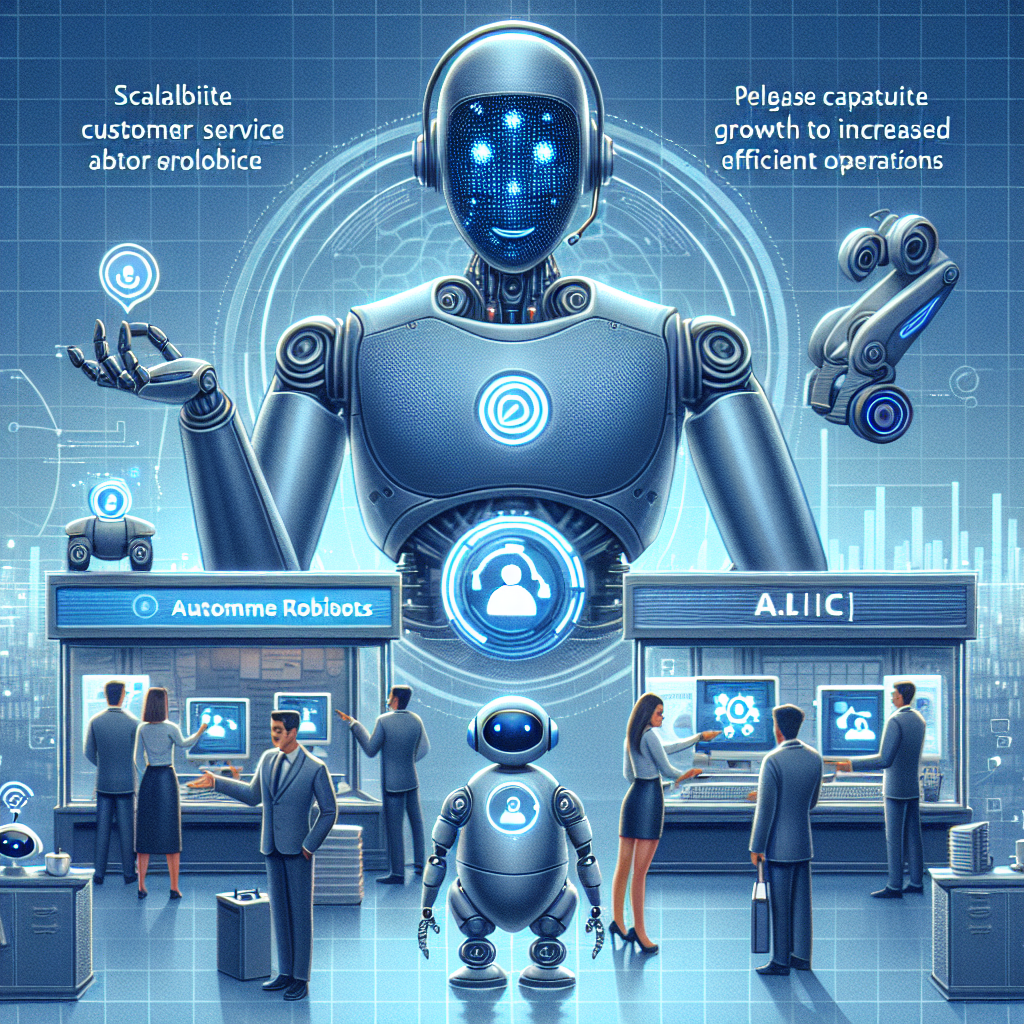The Impact of AI on Customer Service Scalability
In recent years, artificial intelligence (AI) has been transforming various industries, and customer service is no exception. AI technologies are being used to enhance customer service operations, improve efficiency, and provide a better overall experience for customers. One of the key benefits of AI in customer service is its ability to scale operations quickly and efficiently. In this article, we will explore the impact of AI on customer service scalability and how businesses can leverage AI to improve their customer service operations.
How AI is Transforming Customer Service Scalability
AI technologies such as chatbots, virtual assistants, and machine learning algorithms are revolutionizing the way businesses handle customer service inquiries. These technologies can handle a large volume of customer inquiries simultaneously, providing instant responses to customers and reducing the need for human intervention. This scalability is particularly important for businesses that experience fluctuations in customer inquiries, such as during peak times or promotional events.
Chatbots are one of the most common AI technologies used in customer service. These automated systems can interact with customers in real-time, answering common questions, providing product recommendations, and even processing orders. Chatbots can be integrated into various communication channels, including websites, social media platforms, and messaging apps, allowing businesses to provide consistent and personalized customer service across multiple touchpoints.
Virtual assistants, such as Amazon’s Alexa and Apple’s Siri, are also being used to enhance customer service scalability. These AI-powered assistants can help customers with a wide range of inquiries, from tracking orders to scheduling appointments. Virtual assistants can handle multiple tasks simultaneously, freeing up human agents to focus on more complex issues and providing a seamless customer experience.
Machine learning algorithms are another key component of AI-powered customer service scalability. These algorithms can analyze vast amounts of customer data to identify patterns and trends, allowing businesses to anticipate customer needs and proactively address issues. Machine learning algorithms can also be used to personalize customer interactions, recommending products or services based on individual preferences and behavior.
Benefits of AI for Customer Service Scalability
There are several benefits of using AI technologies for customer service scalability. Some of the key advantages include:
1. Improved Efficiency: AI technologies can handle a large volume of customer inquiries simultaneously, reducing the need for human intervention and increasing operational efficiency. This allows businesses to serve more customers in less time, improving overall productivity and reducing costs.
2. 24/7 Availability: AI-powered chatbots and virtual assistants can provide instant responses to customer inquiries at any time of the day or night. This 24/7 availability ensures that customers receive timely assistance, even outside of regular business hours.
3. Personalized Customer Interactions: AI technologies can analyze customer data to personalize interactions and provide tailored recommendations. This personalized approach can enhance the customer experience and increase customer satisfaction and loyalty.
4. Scalable Operations: AI technologies can scale operations quickly and efficiently, allowing businesses to handle fluctuations in customer inquiries without the need to hire additional staff. This scalability is particularly important during peak times or promotional events when customer demand is high.
5. Data-driven Insights: AI technologies can analyze vast amounts of customer data to identify patterns and trends, providing businesses with valuable insights into customer behavior and preferences. These insights can be used to improve products and services, enhance marketing strategies, and drive business growth.
Challenges of AI for Customer Service Scalability
While AI technologies offer numerous benefits for customer service scalability, there are also some challenges that businesses need to consider. Some of the key challenges include:
1. Integration Complexity: Implementing AI technologies into existing customer service operations can be complex and time-consuming. Businesses need to ensure that AI systems are properly integrated with existing systems and processes to maximize their effectiveness.
2. Training and Maintenance: AI technologies require ongoing training and maintenance to ensure optimal performance. Businesses need to invest in training programs for employees and regular updates for AI systems to keep them up to date and functioning properly.
3. Customer Acceptance: Some customers may be hesitant to interact with AI-powered systems, preferring human agents for customer service inquiries. Businesses need to educate customers about the benefits of AI and ensure that AI systems are user-friendly and provide a seamless experience.
4. Data Privacy and Security: AI technologies rely on vast amounts of customer data to personalize interactions and provide tailored recommendations. Businesses need to ensure that customer data is handled securely and in compliance with data privacy regulations to protect customer privacy and build trust.
FAQs
Q: How can businesses leverage AI to improve customer service scalability?
A: Businesses can leverage AI technologies such as chatbots, virtual assistants, and machine learning algorithms to handle a large volume of customer inquiries simultaneously, provide instant responses to customers, and personalize interactions based on individual preferences and behavior.
Q: What are the key benefits of using AI for customer service scalability?
A: Some of the key benefits of using AI for customer service scalability include improved efficiency, 24/7 availability, personalized customer interactions, scalable operations, and data-driven insights.
Q: What are some of the challenges of implementing AI for customer service scalability?
A: Some of the key challenges of implementing AI for customer service scalability include integration complexity, training and maintenance requirements, customer acceptance issues, and data privacy and security concerns.
In conclusion, AI technologies are transforming customer service operations and providing businesses with the scalability needed to handle fluctuations in customer inquiries efficiently. By leveraging AI technologies such as chatbots, virtual assistants, and machine learning algorithms, businesses can improve operational efficiency, provide personalized customer interactions, and gain valuable insights into customer behavior and preferences. While there are challenges to consider, the benefits of using AI for customer service scalability far outweigh the potential drawbacks. As AI continues to evolve, businesses that embrace these technologies will be well-positioned to deliver exceptional customer service and drive business growth in the digital age.

